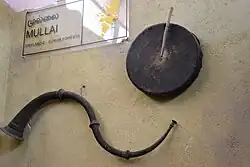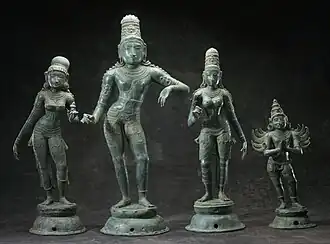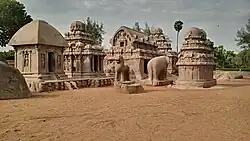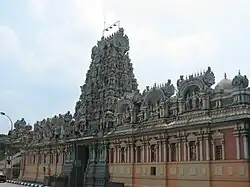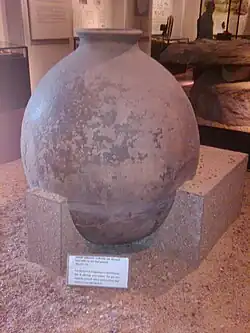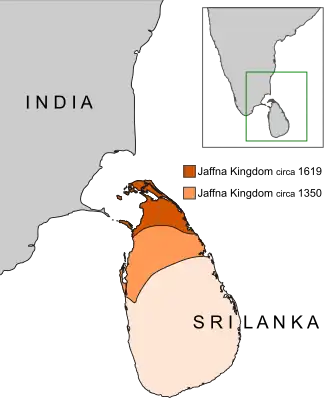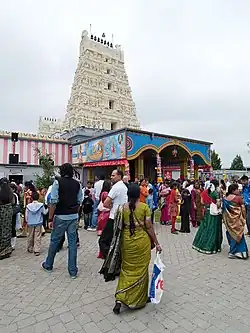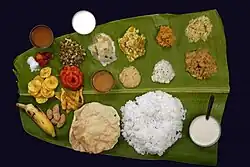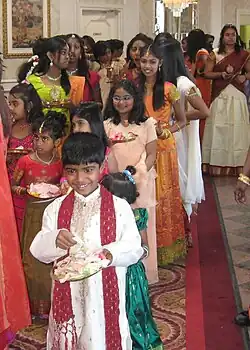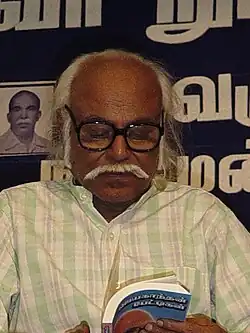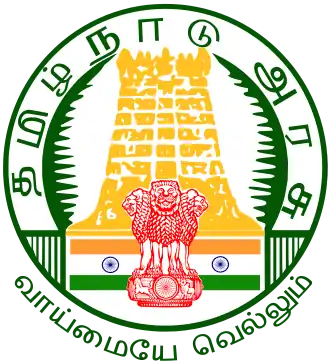Portal:Tamils
The Tamils portalArchaeological evidence from Tamil Nadu indicates a continuous history of human occupation for more than 3,800 years. In the Sangam period, Tamilakam was ruled by the Three Crowned Kings of the Cheras, Cholas and Pandyas. Smaller Velir kings and chieftains ruled certain territories and maintained relationship with the larger kingdoms. Urbanisation and mercantile activity developed along the coasts during the later Sangam period with the Tamils influencing the regional trade in the Indian Ocean region. Artifacts obtained from excavations indicate the presence of early trade relations with the Romans. The major kingdoms to rule the region later were the Pallavas (3rd–9th century CE), and the Vijayanagara Empire (14th–17th century CE). The island of Sri Lanka often saw attacks from the Indian mainland with the Cholas establishing their influence across the island and across several areas in Southeast Asia in the 10th century CE. This led to the spread of Tamil influence and contributed to the cultural Indianisation of the region. Scripts brought by Tamil traders like the Grantha and Pallava scripts, induced the development of many Southeast Asian scripts. The Jaffna Kingdom later controlled the Tamil territory in the north of the Sri Lanka from 13th to 17th century CE. European colonization began in the 17th century CE, and continued for two centuries until the middle of the 20th century. (Full article...) Selected article -Tiruchirappalli (Tamil pronunciation: [ˈt̪iɾɯtːʃiɾapːaɭːi] ⓘ), also known as Trichy, is a major tier II city in the Indian state of Tamil Nadu and the administrative headquarters of Tiruchirappalli district. The city is credited with being the best livable and the cleanest city of Tamil Nadu, as well as the fifth safest city for women in India. It is the fourth largest urban agglomeration in the state. Located 322 kilometres (200 mi) south of Chennai and 374 kilometres (232 mi) north of Kanyakumari, Tiruchirappalli sits almost at the geographic centre of Tamil Nadu. The Cauvery Delta begins 16 kilometres (9.9 mi) west of the city where the Kaveri river splits into two, forming the island of Srirangam which is now incorporated into the Tiruchirappalli City Municipal Corporation. The city occupies an area of 167.23 square kilometres (64.57 sq mi) and had a population of 916,857 in 2011. Tiruchirappalli's recorded history begins under Chola rule in the 3rd century BC. The city has also been ruled by the Pallavas, Pandyas, Vijayanagar Empire, Nayak Dynasty, the Carnatic state and the British. The most prominent historical monuments in Tiruchirappalli include the Rockfort at Teppakulam, the Ranganathaswamy temple at Srirangam dedicated to the reclining form of Hindu God Vishnu, and is also the largest functioning temple in the world, and the Jambukeswarar temple at Thiruvanaikaval, which is also the largest temple for the Hindu God Shiva in the world. The archaeologically important town of Uraiyur, capital of the Early Cholas, is now a neighbourhood in Tiruchirappalli. The city played a critical role in the Carnatic Wars (1746–1763) between the British and the French East India companies. (Full article...) General imagesSelected biography -D. Jayakanthan (24 April 1934 – 8 April 2015), popularly known as JK, was an Indian writer, journalist, orator, filmmaker, critic and activist. Born in Cuddalore, he dropped out of school at the age of 9 and went to Madras, where he joined the Communist Party of India. In a career spanning six decades, he authored around 40 novels, 200 short stories, apart from two autobiographies. Outside literature, he made two films. In addition, four of his other novels were adapted into films by others. Jayakanthan's literary honours include Jnanpith and Sahitya Akademi awards. He was also a recipient of Padma Bhushan (2009), India's third-highest civilian honour, the Soviet Land Nehru Award (1978), and the Russian government's Order of Friendship (2011). (Full article...) CategoriesSelect [►] to view subcategories
Tamil people Tamil people by occupation Tamil people by religion Tamil women Fictional Tamil people Tamil billionaires Tamil diaspora Ezhava Tamil families Flags of Tamils Indian Tamil people Social groups of Tamil Nadu Tamils of Sri Lanka Tamil people of Telugu descent Select [►] to view subcategories
Tamil Ancient Tamil grammarians Tamil culture Tamil economics Tamil history Tamil-language mass media Tamil Nadu Tamil organisations Tamil people Tamil politics Tamil society Tamils of Sri Lanka Tamil languages Tamilakam Tamil stubs TopicsTamil People Countrywide: India • Sri Lanka • Canada • Malaysia • Singapore • South Africa • England Related Ethnic Groups: Brahui • Gond • Kannadiga • Khonds • Kodava • Oraon • Malayali • Telugus • Tuluvas Related indigenous Groups: Badagas • Toda • Kuruba
See also: List of Tamil people, Tamil script, Tamil Script Code for Information Interchange Related portalsWikiProjects
Things to do
Associated WikimediaThe following Wikimedia Foundation sister projects provide more on this subject:
Discover Wikipedia using portals
|
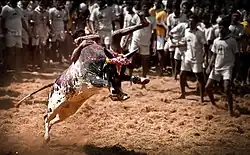
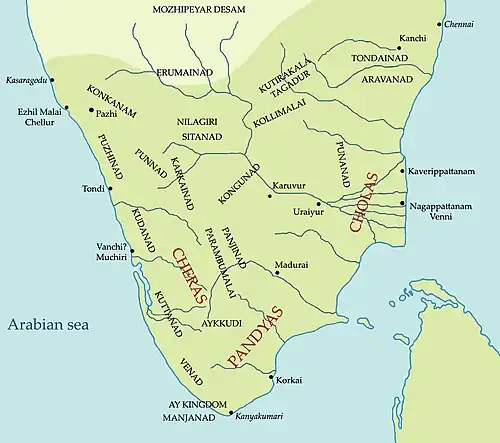
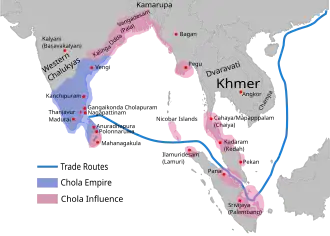


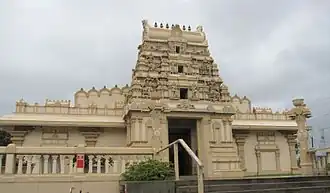
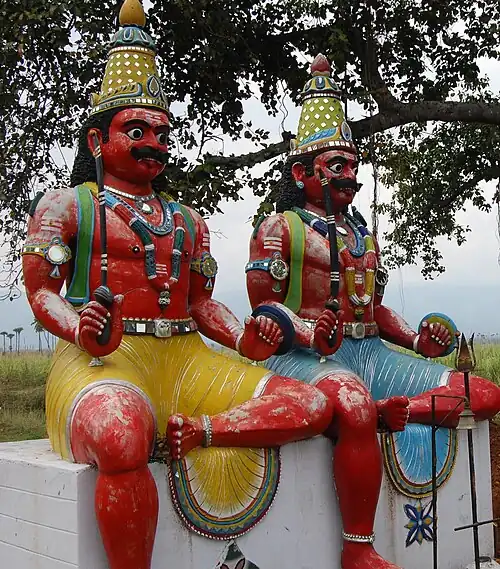
.jpg)
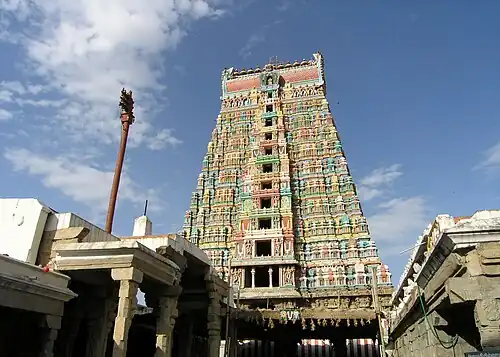
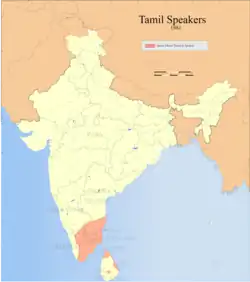
.png)
.jpg)
